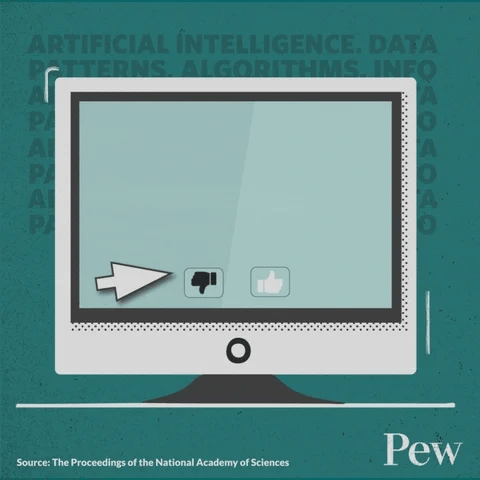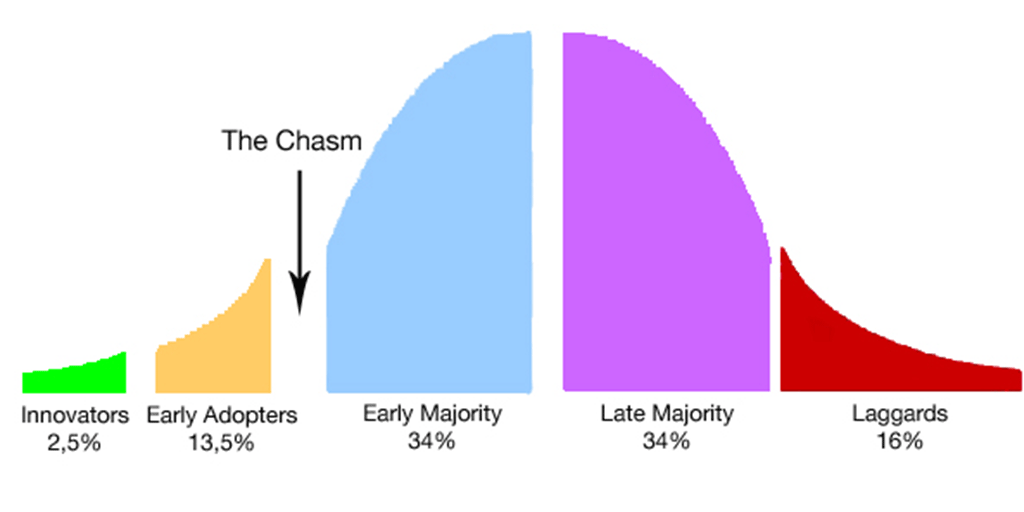
AI: Tracking AI Adoption by US workers. RTZ #539
The question of AI Utility for mainstream users in their work and personal lives, continues to persis in these early days of the AI Tech Wave. It’s something I’ve discussed at length. With the general view that technology is generally always ahead of pragmatic, daily habit changing applications and services for regular, mainstream users. And mainstream users’ concerns about AI, borne out in surveys, aren’t helping.
Early Adopters will generally jump into every tech wave, and will make up the first 10-20% of the fast ramping adoption curves in the beginning. And in a world of 8 billion people, over 5 billion with computers and smartphones, that early adopter user base is deceptively huge in the multi-hundred million to a billion plus users, chasms and all.
Axios again posits this perennial question in “Study: Growth of AI adoption slows among U.S. workers”:
“The percentage of workers in the U.S. who say they are using AI at work has remained largely flat over the last three months, according to a new study commissioned by Slack.”
Slack, owned by Enterprise Cloud Software as a Service (SaaS) juggernaut Salesforce.com, is keenly interested in this topic:
“Why it matters: If AI’s rapid adoption curve slows or flattens, a lot of very rosy assumptions about the technology — and very high market valuations tied to them — could change.”
This of course is also a persistent debate today on Wall Street, as I’ve discussed.
“Driving the news: Slack said its most recent survey found 33% of U.S. workers say they are using AI at work, an increase of just a single percentage point. That represents a significant flattening of the rapid growth noted in prior surveys.”
-
“Global adoption of AI use at work, meanwhile, rose from 32% to 36%.”
Part of the issues seems to the perceived social taboo of ‘using AI for work’:
“Between the lines: Slack also found that globally, nearly half of workers (48%) said they were uncomfortable telling their managers they use AI at work.”
-
“Among the top reasons cited were a fear of being seen as lazy, cheating or incompetent.”
There’s a long way to go not just in the utility of AI products and services, but how it’s fundamentally viewed in the workplace:
“What they’re saying: “Too much of the burden has been put on workers to figure out how to use AI,” Slack senior VP of research and analytics Christina Janzer said in a statement. “To ensure adoption of the technology, it’s important that leaders not only train workers, but encourage employees to talk about it and experiment with AI out in the open.”
-
“The survey queried 17,372 workers in Australia, Brazil, Canada, France, Germany, India, Italy, Japan, the Netherlands, Singapore, Spain, Sweden, Switzerland, the U.K. and the U.S., and took place between Aug. 2 and Aug 30.”
Yesterday, I discussed how the Education industry and teachers across the spectrum, are transitioning from traditional education software tech companies like Chegg, to AI being used by students at school. We have a similar cultural and social transition to work through in the work place as well.
The other thing of course it that AI technologies are being ramped into functionality like ‘AI Reasoning’ and ‘AI Agents’, that will fundamentally ramp up the functionality of AI in the workplace. But that will take time. Stay tuned.
(NOTE: The discussions here are for information purposes only, and not meant as investment advice at any time. Thanks for joining us here)










